espionage
Democracy Betrayed, The Scathing Truth Behind Canada’s Foreign Interference Report
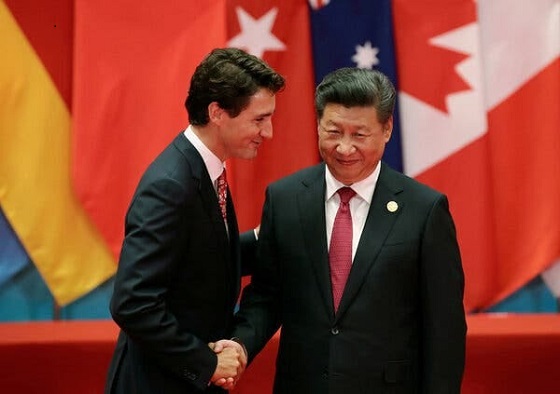
A damning report reveals years of inaction, secrecy, and complicity as foreign actors targeted elections and silenced communities under Trudeau’s watch
If you want to understand the slow, deliberate erosion of Western democracy, look no further than Canada. A newly released report on foreign interference in Canadian elections is a damning indictment of how a nation’s leadership can be so corrupt, incompetent, and cowardly that it allows foreign powers—most notably China—to undermine its democratic institutions while pretending to govern in the public’s interest. The so-called leader of this disgrace? Prime Minister Justin Trudeau, who, despite recently announcing his resignation, continues to embody everything wrong with modern governance: self-interest, spinelessness, and contempt for the very people he was elected to serve.
The report, spanning over a hundred pages, exposes the extent of foreign interference in Canada’s 2019 and 2021 federal elections. But don’t let the dry language and bureaucratic jargon fool you—this isn’t just an academic exercise. This is the story of how a sitting prime minister and his enablers knowingly allowed foreign actors to meddle in the political process, smear opposition candidates, intimidate diaspora communities, and effectively shape the narrative to their benefit.
So let’s get into the details, because, unlike Trudeau and his lackeys, I actually believe in transparency.
China’s Election Meddling: A Case Study in Cowardice
First, let’s talk about the obvious elephant in the room: China. The report doesn’t shy away from stating what we’ve all known for years—China is actively working to undermine Canada’s democracy. The Communist Party of China (CCP) has its hands deep in Canadian politics, and the interference isn’t limited to election periods. According to the report, Beijing’s strategies include manipulating diaspora communities, intimidating critics, spreading disinformation, and even using proxies to influence nomination contests within Canadian political parties.
Take the case of Han Dong, a Liberal candidate in the 2019 election for Don Valley North. Intelligence suggests that PRC officials were involved in irregularities during his nomination process. Buses of international students were allegedly brought in to vote for Dong using falsified documents, all under the direction of CCP-linked operatives. This wasn’t just a small-town scandal; this was a coordinated effort to place Beijing’s preferred candidate into Canada’s Parliament.
The same tactics played out in 2021. Conservative leader Erin O’Toole and MP Kenny Chiu were directly targeted by Chinese-language disinformation campaigns. O’Toole was smeared as a “Canadian Trump,” and Chiu, who dared to propose a foreign influence registry, became the target of coordinated attacks from CCP-linked media. The aim was clear: scare Chinese-Canadian voters away from the Conservatives. The Liberals, conveniently, benefitted from this interference.
Trudeau’s Response: Silence, Secrecy, and Self-Preservation
The government’s handling—or rather, its non-handling—of foreign interference is a case study in cowardice and self-interest. According to the report, intelligence agencies like CSIS raised the alarm about foreign actors meddling in Canada’s elections. They gathered detailed evidence, flagged specific instances of disinformation, and even briefed Trudeau himself. But what did Trudeau do with this critical information? Nothing. Not a statement, not a warning, not even a hint to the Canadian public that their democracy was under attack.
This wasn’t a failure of intelligence; it was a failure of leadership. CSIS fulfilled its duty, providing the necessary information to those in power. Yet Trudeau and his government chose to suppress the truth. Why? Because confronting the issue head-on would have exposed just how much his Liberals benefited from this interference.
And here’s the kicker: the mechanisms designed to protect democracy didn’t just fail—they were rigged to fail. Take the so-called Panel of Five, the bureaucratic body tasked with determining whether threats to elections warrant public disclosure. This group of unelected senior officials, operating under vague thresholds and unclear criteria, decided that Beijing’s activities during both the 2019 and 2021 elections didn’t meet the standard for public disclosure.
Think about that for a second. Intelligence agencies reported that Chinese Communist Party (CCP)-linked operatives were actively meddling in Canada’s elections—spreading lies about opposition candidates, manipulating diaspora communities, and amplifying CCP propaganda. Yet the Trudeau government deemed this not worth telling the Canadian people. The Panel of Five essentially became a firewall, shielding the Liberals from accountability under the guise of maintaining public confidence.
The absurdity doesn’t stop there. After the 2021 election, the Conservative Party compiled evidence of a targeted disinformation campaign against its candidates and sent it to government officials. This wasn’t hearsay—it was a detailed dossier, backed by intelligence and media analysis. What did the Trudeau government do with it? They shrugged. They didn’t investigate further. They didn’t acknowledge the findings. They didn’t even bother to respond substantively. Why? Because that disinformation campaign served their interests.
Let’s be clear about what this means. The Trudeau government, knowing full well that foreign actors were undermining Canada’s democracy, chose to stay silent because the interference helped them win. This isn’t just negligence—it’s complicity. Trudeau and his Liberals actively benefited from the chaos sown by Beijing, and they were perfectly content to let it continue as long as it worked in their favor.
It’s no wonder Trudeau has been so cagey about foreign interference. His government has gone out of its way to bury the issue, hiding behind classified documents and vague statements about “national security.” The report exposes this strategy for what it is: a deliberate effort to suppress the truth and avoid accountability. The Liberals’ refusal to act wasn’t about protecting Canadians—it was about protecting themselves.
Now, let’s talk about the broader implications of this. By choosing secrecy and inaction, Trudeau didn’t just fail to defend Canadian democracy—he actively undermined it. Every time his government ignored intelligence or dismissed concerns, they sent a clear message to foreign actors: Canada is an easy target. Want to manipulate elections? Go right ahead. Want to intimidate Canadian citizens? Be our guest. The government won’t stop you, and they certainly won’t tell anyone about it.
This isn’t leadership. This is betrayal. Trudeau’s decision to prioritize political expediency over national security is a stain on his legacy and a threat to Canada’s future. His silence, his secrecy, and his self-preservation have left the country vulnerable, its democratic institutions weakened, and its people in the dark.
The Trudeau government’s inaction on foreign interference is one of the most shameful episodes in modern Canadian history. It’s a stark reminder that when leaders prioritize their own interests over those of their country, the consequences are catastrophic. The question now is whether Canadians will demand accountability—or whether they’ll let this betrayal go unanswered.
A Government That Betrays Its People
Let’s not mince words here: Justin Trudeau’s government didn’t just fail Canadians—it betrayed them. The foreign interference report exposes this betrayal in excruciating detail. It’s not just about what Trudeau did, like turning a blind eye to Beijing’s meddling in Canadian elections. It’s about what he refused to do. He refused to defend Canada’s democracy when it needed defending most. He refused to stand up to the Chinese Communist Party (CCP) when they targeted and intimidated Canadian citizens. And he refused to lead when diaspora communities were crying out for protection against foreign repression on Canadian soil.
Let’s start with the facts laid bare by the report. Chinese-Canadian communities weren’t just affected by foreign interference—they were targeted. Beijing’s agents used fear, manipulation, and outright threats to control the narrative in these communities. Families were warned that voting for candidates critical of the CCP could bring repercussions for their relatives back in China. Activists who dared to speak out against Beijing were silenced, their voices drowned out by a well-organized campaign of intimidation. This wasn’t subtle. This wasn’t covert. This was blatant repression, happening right under Trudeau’s nose.
What’s worse, the report makes clear that this wasn’t just a side effect of interference; it was a strategy. The CCP didn’t just want to influence elections—they wanted to control entire communities. By sowing fear, they discouraged Chinese-Canadians from participating in the democratic process. They wanted to isolate critics, marginalize dissenters, and send a message: if you speak against us, we will come for you and your family. And what did the Trudeau government do in response? Nothing. Not a word. Not a single meaningful action.
This is more than a failure. It’s a dereliction of duty. Trudeau loves to preach about human rights on the world stage, posing for photo ops and lecturing other leaders about the moral high ground. Yet when Beijing came into his own backyard and trampled the rights of Canadian citizens, he stayed silent. Where was his outrage? Where was his condemnation? Nowhere to be found. Trudeau’s inaction sends a clear message to every foreign power looking to exploit Canada: our government will not stand up for its people.
And then there’s the secrecy. Oh, the secrecy. The report claims to promote “transparency,” but most of the critical information remains classified. What Canadians are left with is a series of vague summaries and sanitized conclusions. The government doesn’t trust you to handle the truth. They think you’re too fragile, too uninformed, or maybe just too unimportant to be told what’s really going on.
This isn’t just insulting—it’s dangerous. Secrecy creates a vacuum where misinformation and distrust thrive. It leaves Canadians in the dark about the threats to their democracy, while allowing foreign powers to operate unchecked. And let’s be clear: the Trudeau government’s obsession with secrecy isn’t about protecting national security. It’s about protecting themselves. They don’t want you to see how badly they’ve handled this, how deeply they’ve failed.
What Canadians deserve—and what they’re not getting—is leadership. Real leadership. The kind of leadership that prioritizes the safety, dignity, and rights of its citizens over political expediency. The kind of leadership that takes a stand against foreign bullies instead of kowtowing to them. Trudeau has proven, time and time again, that he is incapable of this. And now, as he prepares to exit stage left, he’s leaving behind a broken system and a government more concerned with maintaining power than defending democracy.
Let’s not fool ourselves into thinking this problem will disappear when Trudeau does. His enablers are still in power. The Liberal Party isn’t just complicit in this failure—it’s the architect of it. Trudeau’s culture of weakness, secrecy, and corruption has infected the entire party. And if you think the new leader will be any different, you’re deluding yourself. This isn’t about one man. It’s about an entire system that has failed Canadians at every level.
The report calls for a “whole-of-society” response to foreign interference. That sounds nice, doesn’t it? Very bureaucratic. Very official. But let’s be honest about what that really means. It’s a way of passing the buck. It’s the government’s way of saying, “This isn’t just our problem—it’s everyone’s problem.” But it’s not everyone’s problem. It’s the government’s job to defend democracy. It’s their responsibility to protect citizens from foreign threats. And if they can’t—or won’t—do the job, then they need to be replaced with people who will.
This is a wake-up call for Canadians. It’s time to demand accountability. Trudeau may be on his way out, but his resignation doesn’t absolve him of responsibility for this mess. Nor does it excuse the failures of his party. The Liberals need to answer for their inaction, their secrecy, and their complicity in allowing foreign interference to thrive.
If you care about Canada’s future—if you care about democracy—then the time to act is now. This isn’t just about protecting elections. It’s about protecting the very foundation of what it means to be Canadian. It’s about standing up for your rights, your voice, and your country. And it starts with holding this government accountable for its betrayal.
Subscribe to The Opposition with Dan Knight .
For the full experience, upgrade your subscription.
espionage
Inside Xi’s Fifth Column: How Beijing Uses Gangsters to Wage Political Warfare in Taiwan — and the West
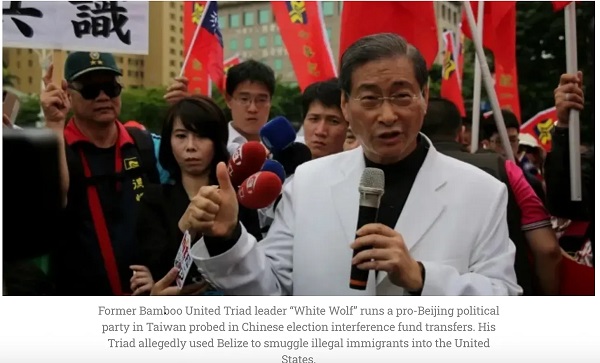
A new Jamestown Foundation report details how China’s Ministry of State Security and allied triads have been used to subvert Taiwan’s democracy as part of Beijing’s united front.
Editor’s Note
The Bureau has previously reported on how Chinese state-linked crime networks have exploited Canada’s real estate market, casinos, and diaspora associations, often under the cover of united front work. One of these groups, the Chinese Freemasons, has been linked to meetings with Canadian politicians, as reported by The Globe and Mail ahead of the 2025 federal election. The Globe noted that the Toronto chapter explicitly advocates for the “peaceful reunification of Taiwan.” The Jamestown Foundation’s new findings on groups active in Taiwan — including the Chinese Freemasons, also known as the Hongmen, the related Bamboo Union triad, and the China Unification Promotion Party (CUPP) — show that Taiwan is the epicenter of a strategy also visible, though less intensively, across democracies including the United States. The parallels — from Vancouver to Sydney to New York to Taipei — should alert governments that the “fifth column” problem is international, and it is growing.
TAIPEI — At a banquet in Shenzhen more than two decades ago, Chang An-lo — the Bamboo Union boss known as “Big Brother Chang” or “White Wolf” — raised a glass to one of the Communist Party’s princelings. His guest, Hu Shiying, was the son of Mao Zedong’s propaganda chief. “Big Brother Chang,” Hu reportedly toasted him, an episode highlighted in a new report from the Jamestown Foundation.
Hu would later be described by Australian journalist John Garnaut as an “old associate of Xi Jinping.” That link — through Hu and other princelings Chang claimed to have met — placed the Bamboo Union leader within the orbit of Party elites. Garnaut also reported that the Ministry of State Security (MSS) had used the Bamboo Union to channel lucrative opportunities to Taiwanese politicians. According to Jamestown researcher Martin Purbrick, a former Royal Hong Kong Police intelligence officer, such episodes show how the CCP has systematically co-opted Taiwanese organized crime as part of its united front strategy.
“The long history of links between the CCP and organized crime groups in Taiwan,” Purbrick writes, “shows that United Front strategy has embedded itself deeply into Taiwan’s political life.”
Chang’s global influence is not a relic of the past. The Bureau reported, drawing on leaked 1990s Canadian immigration records, that intelligence indicated Chang’s triad had effectively “purchased” the state of Belize, on Mexico’s southern border, for use in smuggling illegal immigrants into the United States. But Chang is more relevant than ever as fears of Beijing invading Taiwan grow. In August 2025, seated in his Taipei office before a PRC flag, he appeared on a YouTube program to deny he led any “fifth column.” Instead, he insisted Taiwan must “embrace” Beijing and cast himself as a “bridge for cross-strait peace.”
His denial came just months after Taiwan’s Ministry of Justice accused CUPP of acting as a political front for organized crime and foreign interference. Police suspected more than 130 members of crimes ranging from homicide to drug trafficking. Prosecutors charged CUPP operatives with taking $2.3 million from the CCP to fund propaganda. In January, the Ministry of the Interior moved to dissolve the party outright, submitting the case to Taiwan’s Constitutional Court. By March, a Kaohsiung court sentenced CUPP deputy secretary-general Wen Lung and two retired military officers for recruiting Taiwanese personnel on behalf of the PRC. According to court filings, Wen had been introduced by Chang to the Zhuhai Taiwan Affairs Office, which in turn connected him to a PLA liaison officer.
President Lai Ching-te, in a March national security address, warned that Beijing was attempting to “divide, destroy, and subvert us from within.” Intelligence assessments in Taipei describe the Bamboo Union and CUPP as part of a potential “fifth column,” prepared to foment unrest and manipulate opinion in the event of an invasion.
The historical record shows why Taipei is so concerned. Chang’s name has shadowed some of Taiwan’s darkest chapters. In the 1980s, he was suspected of involvement in the assassination of dissident writer Henry Liu in California. He was later convicted of heroin smuggling in the United States, serving ten years in prison. After returning to Taiwan, he fled again in 1996 when authorities sought his arrest, spending 17 years in Shenzhen. During those years, he cultivated ties with influential Party families. At the Shenzhen banquet, Washington Post journalist John Pomfret wrote, Hu Shiying introduced him as “Big Brother Chang,” signaling acceptance in elite circles. Garnaut, writing over a decade later, noted that Hu was an “old associate of Xi Jinping” and that Chang had moved comfortably among other princelings, including sons of a former CCP general secretary and a top revolutionary general.
These connections translated into political capital. When Chang returned to Taiwan in 2013, he launched the China Unification Promotion Party — a pro-Beijing group openly advocating “one country, two systems.” He declared his mission was to “cultivate red voters.” CUPP cadres and Bamboo Union affiliates became visible in street politics, clashing with independence activists and disrupting rallies. During U.S. Speaker Nancy Pelosi’s 2021 visit, they staged counter-protests echoing Beijing’s line.
The ideological warfare runs even deeper. A Phoenix TV segment from 2011 recalled how a Bamboo Union elder declared in 1981 that he “would rather the CCP rule Taiwan than have Taiwan taken away by Taiwan independents.” Chang himself has echoed this sentiment for decades. In 2005, he launched a Guangzhou-based group called the Defending China Alliance, later rebranded in Taipei as CUPP. His activism has spanned disruptive protests, nationalist rallies, and propaganda campaigns amplified through China-linked media channels.
Purbrick situates these developments within a wider united front playbook. Taiwanese triads and Chinese Freemason associations are courted as grassroots mobilizers, intermediaries, and psychological enforcers. A recent report from the Washington Post has also linked the Chinese Freemasons to the powerful 14K Triad, a global network deeply implicated in Chinese underground banking networks accused of laundering fentanyl proceeds for Mexican cartels through the United States. The triad–Hongmen nexus complements other CCP efforts: online influence campaigns, cultural outreach, and intelligence recruitment inside Taiwan’s military.
The implications extend beyond Taiwan. In Canada, Australia, the United States, Southeast Asia, and beyond, intelligence agencies have documented how PRC-linked triads launder drug profits, fund political donations, and intimidate diaspora critics. These groups benefit from tacit state protection: their criminality overlooked so long as they advance Beijing’s strategic objectives. It is hybrid warfare by stealth — not soldiers storming beaches, but criminal syndicates reshaping politics from within.
For Taiwan, the Bamboo Union and CUPP remain immediate threats. For other democracies, they serve as case studies of how united front tactics adapt across borders. President Lai’s warning that Beijing seeks to “create the illusion that China is governing Taiwan” resonates internationally.
Before leaving journalism to establish an advisory firm, John Garnaut himself became entangled in the political fallout of his reporting. He was sued by a Chinese-Australian real estate developer from Shenzhen, who had funneled large donations to Australian political parties. The developer, later publicly implicated in the case by an Australian lawmaker under parliamentary privilege, successfully sued Garnaut for defamation in 2019. Subsequent disclosures confirmed the tycoon’s implication in an FBI indictment involving United Nations influence schemes and notorious Chinese operative Patrick Ho, later linked to a Chinese oil conglomerate accused of targeting the Biden family in influence operations. Together, these episodes highlight the global reach of united front networks.
Business
A Nation Built on Sand: How Canada Squanders Its Abundance
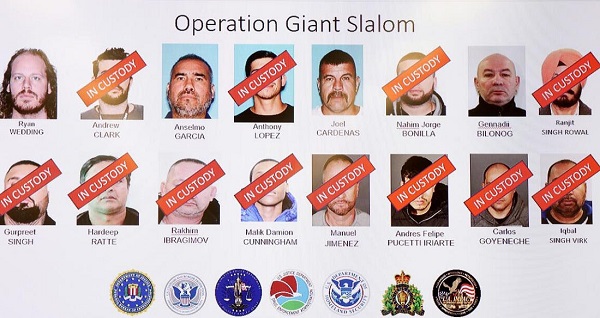
By Garry Clement
Columnist Garry Clement, former RCMP anti–money laundering expert, argues Canada’s leaders have built prosperity on sand — leaving the nation exposed to collapse unless urgent reforms are made.
Canada is celebrated abroad as a safe, prosperous, and open society. But beneath the surface, a far more precarious reality is taking shape. The pillars of our economy — land, real estate, natural resources, and immigration — have been left vulnerable to foreign manipulation, criminal exploitation, and political negligence. The result is what can only be described as a sandcastle economy — striking at first glance, but fragile. Like the parable of the house built on sand, it is a foundation vulnerable to give way when the storm comes.
Investigative journalist Sam Cooper has long warned that foreign capital and organized crime have deeply infiltrated Canada’s real estate market. On Prince Edward Island, the Bliss and Wisdom Buddhist group quietly acquired swaths of farmland and property, raising questions about how religious fronts with Chinese connections gained such leverage in a province with limited oversight. In Saskatchewan, Chinese investors have been buying up valuable farmland, raising alarms about food sovereignty and the lack of restrictions on foreign ownership of agricultural land. Meanwhile in British Columbia, governments continue to downplay or outright ignore the extent to which transnational money laundering has fueled a housing market now completely detached from local incomes.
All of this has unfolded against a backdrop of minimal transparency, weak beneficial ownership registries, and virtually no effective enforcement. The same blind spots that allowed casinos and luxury real estate in Vancouver to become laundromats for dirty money are now being replicated nationwide.
The most urgent threat tied to these financial blind spots is fentanyl. Canada has become one of the world’s top destinations for proceeds from synthetic drug trafficking — a crisis that has devastated families from coast to coast. Chinese triads, Mexican cartels, and local gangs launder profits through casinos, shell companies, and real estate deals. Yet federal legislation continues to lag behind, leaving law enforcement outgunned. Every toxic opioid death in Canada is not only a health tragedy, but also a reminder of how organized crime is exploiting our lax financial controls. While other countries have implemented tough anti-money laundering regimes, Canada remains dangerously complacent.
That same complacency extends to national security. Canada has repeatedly delayed designating Iran’s Islamic Revolutionary Guard Corps as a terrorist organization, despite overwhelming evidence of its involvement in financing terrorism and conducting influence operations abroad. Our allies — including the United States — have acted. Canada, however, remains an outlier, seemingly unwilling to confront the risk of Iranian proxy activity operating in plain sight within our borders.
Immigration policy reveals similar weaknesses. Foreign students, particularly from India, have become central to the financial survival of colleges and universities. Yet a growing number are not here primarily to study. Instead, education visas have become a backdoor into Canada’s workforce, particularly in industries such as trucking. The tragic Humboldt Broncos bus crash in 2018 exposed gaps in training and licensing in the trucking sector. Since then, reports have continued to surface of foreign students entering the industry without adequate skills — a risk not only to public safety but to the integrity of our immigration system. Ottawa has failed to adequately regulate this pipeline, preferring instead to rely on the tuition dollars and temporary labour it generates.
Editor’s Note: Forthcoming Bureau investigations, citing U.S. government sources, question how widespread fraud and Indian transnational crime capture of Canada’s commercial trucking industry have fueled the flow of fentanyl, cocaine, and methamphetamine — turning the country into a weak link for its international allies.
The threads running through these crises are clear: willful blindness, weak laws, and short-term political expediency. Land and natural resources are being sold without regard for sovereignty. Real estate markets are distorted by laundered money. Organized crime groups funnel fentanyl profits into Canada with ease. The IRGC operates without effective restriction. And the education system is exploited as a labour channel, with little oversight. Canada is, in effect, trading away its long-term security for short-term economic gains.
Politicians, bureaucrats, and regulators too often dismiss warnings as alarmist or xenophobic, when in fact they reflect real risks to the stability of the country. A sandcastle can stand tall on the shore, admired in the moment, but everyone knows what comes next. Unless urgent steps are taken — enforcing transparency in land ownership, restricting foreign control of farmland and resources, tightening anti-money laundering measures, confronting hostile foreign actors, and restoring integrity to the education and immigration systems — collapse is inevitable.
The signs are already here: families priced out of homes, farmers squeezed out of land, fentanyl overdoses climbing, and a public losing faith in the fairness of the system. Canada prides itself on being open and inclusive. But openness without vigilance is vulnerability. Like unwise stewards, our leaders have been gifted with a land of overflowing abundance, and yet they have squandered its potential through short-sighted choices. That failure must be corrected — immediately and wisely — if the nation is to not only thrive, but survive.
The Bureau is a reader-supported publication.
To receive new posts and support my work, consider becoming a free or paid subscriber.
Former senior RCMP officer Garry Clement consults with corporations on anti-money laundering, contributed to the Canadian academic text Dirty Money, and wrote Canada Under Siege, and Undercover, In the Shady World of Organized Crime and the RCMP
-
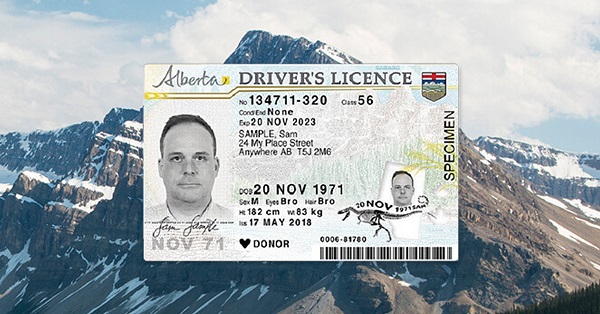
 Alberta2 days ago
Alberta2 days agoAlberta first to add citizenship to licenses
-

 Alberta2 days ago
Alberta2 days agoBreak the Fences, Keep the Frontier
-
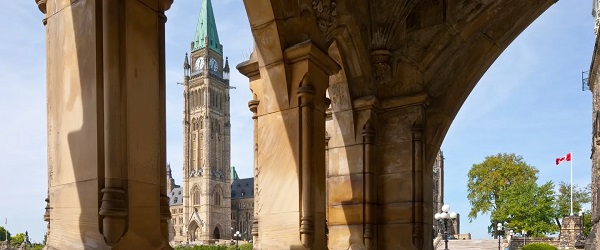
 Business1 day ago
Business1 day agoCarney’s ‘major projects’ list no cause for celebration
-

 Business1 day ago
Business1 day agoGlobal elites insisting on digital currency to phase out cash
-
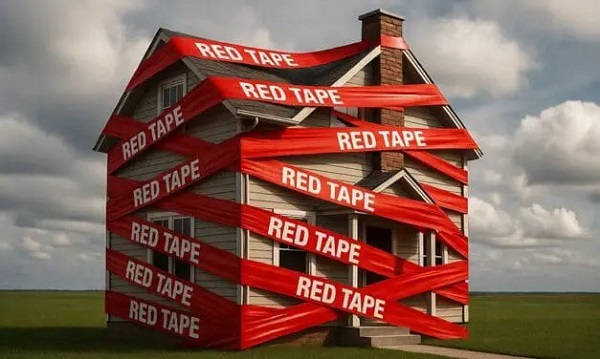
 Business1 day ago
Business1 day agoRed tape is killing Canadian housing affordability
-

 Health24 hours ago
Health24 hours agoMAiD should not be a response to depression
-

 Artificial Intelligence23 hours ago
Artificial Intelligence23 hours agoUK Police Chief Hails Facial Recognition, Outlines Drone and AI Policing Plans
-

 Business21 hours ago
Business21 hours agoOttawa’s so-called ‘Clean Fuel Standards’ cause more harm than good





